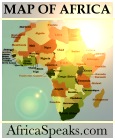Zimbabwe: Talks Pact Signed
Posted: Tuesday, July 22, 2008By Itai Musengeyi and Takunda Maodza
July 22, 2008
The Herald
Let's be masters of our own destiny: President PRESIDENT Mugabe and leaders of the two MDC formations – Morgan Tsvangirai and Arthur Mutambara – yesterday signed a Memorandum of Understanding in Harare, setting the agenda for full-scale talks to resolve the country's political and economic problems.
All the parties expressed commitment to dialogue, saying it was the only way forward as President Mugabe and Tsvangirai met for the first time in a decade.
President Thabo Mbeki of South Africa, the Sadc-appointed and African Union-endorsed mediator – who flew into Harare yesterday afternoon for the signing ceremony–said the talks should be completed as quickly as possible.
Cde Mugabe and Tsvangirai were later to have lunch together while President Mbeki and Mutambara had theirs separately where they discussed for close to an hour.
The MoU states that the talks should be completed within two weeks from the date of signing.
Soon after the signing ceremony at the Rainbow Towers Hotel, the three parties' negotiators briefly consulted behind closed doors.
Speaking after the signing, President Mugabe said he and his party, Zanu-PF, were committed to the talks, but stressed that the three parties should engage as Zimbabweans without Western interference save for the assistance of South Africa and Africa.
"We sit here in order for us to chart a new way, a new way of political interaction and this out of the decision that we made, we of Southern Africa, some time ago, that we assist each other and in this particular case, we assist Zimbabwe to overcome the political and economic situation which requires support.
"Our having signed this MoU is a serious matter on my part and my party Zanu-PF; we take it seriously. The signatures we have appended there (on the MoU), I hope reflect the sincerity of all of us.
"As we begin the interaction, we shall be doing so as Zimbabweans, entirely as Zimba-bweans, with the help of South Africa and that we cut off whatever were influences on us from Europe or the United States.
"We must act as Zimbabweans, think as Zimbabweans, be masters of our own destiny.
"If we do that, there will be no need for us to suffer under sanctions, no need for us to call for Europe to impose sanctions. There will be no need for a European hand, we don't want it.
"That way we will find we are real, true, friendly, brotherly and sisterly Zimbabweans," said President Mugabe.
He said Africa could assist in the process, but not European and American masters.
"Let's move forward and start on what Professor Mutambara has been calling one vision for Zimbabwe, singing one national anthem, flying one flag,'' said Cde Mugabe.
But as President Mugabe warned against foreign meddling, Keith Scott, the first secretary at the British embassy, was trying to gatecrash into Jacaranda Room where the signing ceremony took place.
He and other officials from European embassies in Harare were milling outside the room and some could be seen jostling with journalists for a copy of the MoU, which was made available after the signing ceremony.
Tsvangirai said he was committed to dialogue and failure was not an option.
"My commitment to this process is unquestionable, it is not superficial, it is total because we want to achieve what Zimbabweans out there want to achieve.
"I sincerely acknowledge that if we put our heads together we can find a solution, not finding a solution is not an option.
"As we sign the MoU, we all commit ourselves to the first tentative step to solutions. I have been reluctant (to endorse the process), but I want to share a heavy commitment that the process of negotiation is successful. We want a better Zimbabwe," said Tsvangirai.
He described the occasion as historic as Zimbabwe's political leaders were sitting at the same table to discuss problems facing their country.
"This is a very historic occasion. I think the last time I had a tete-a-tete with Cde Mugabe was in 1998," he said.
Mutambara stressed that Zimbabweans needed a shared vision to resolve the political and economic problems.
He said the MoU was not about this or that political party, but about Zimbabweans.
"We must put national interest before personal interests. We must be driven by national interest as we negotiate in the next two weeks. The people's will must be supreme and sovereign.
"Let's have a shared national economic vision," said Mutambara.
He described the day as unique in the history of Zimbabwe as the country's political leaders had shown maturity to resolve the problems facing the country.
Mutambara described the MoU as a document of great significance that allowed for dialogue whose outcome should result in a political settlement and later a new Constitution.
"The signing of the MoU is very important, it allows us to begin negotiations. This political settlement we seek to achieve in two weeks is not the answer . . . we need national healing. Beyond the political settlement, we want gatherings like these where leaders speak to Zimbabweans," he said.
President Mbeki congratulated the three parties for "taking a very important step in this process of negotiations which must lead to our acting together to build Zimbabwe".
"It (the MoU) commits the negotiating parties to an intense programme of work to try and finalise the negotiations as quickly as possible," he said.
President Mbeki said he was confident the parties would reach an agreement because, as Tsvangirai had pointed out, failure was not an option and everybody agreed to that.
President Mbeki said no party had set conditions for the talks because all the three parties were ready and genuinely willing to engage.
He said he had never at any stage thought of abandoning the mediation process because
South Africa and Zimbabwe were neighbours and neighbours assist each other as problems in either of the two countries affected the other.
President Mbeki said an important decision was taken on April 18 1980 when Zimbabwe got its independence and took the responsibility to assist South Africa liberate itself from the shackles of apartheid.
President Mbeki said that decision by Zimbabwe made it important "for one not to walk away" while the spirit in Sadc was to assist each other in times of need.
President Mugabe thanked President Mbeki for his mediation efforts, which had yielded positive results despite the vilification he was subjected to from some quarters.
He said Constitutional Amendment Number 18, several changes to electoral laws which were implemented in the March harmonised elections and the amendments of the Public Order and Security Act and the Access to Information and Protection of Privacy Act were all a result of President Mbeki's mediation.
"I am mentioning this because out there, there is unfair criticism of President Mbeki on the front of his mediation, yet he has achieved all this. I thank him for his persistence and positive sensitivity to criticism. When criticism is ill-placed, ignorant and undeserving, it needs to be ignored because it is wrong," said President Mugabe.
President Mbeki arrived in Zimbabwe at noon and was welcomed at the Harare International Airport by President Mugabe, senior Government officials and service chiefs. He flew back to South Africa yesterday evening.
Officials from Zanu-PF, MDC-T and MDC – who included the negotiators Cde Patrick Chinamasa, Cde Nicholas Goche, Professor Welshman Ncube, Mrs Priscilla Misihairabwi-Mushonga, Mr Tendai Biti, Mr Elton Mangoma and Mr Lovemore Moyo – witnessed the signing.Printer friendly version
Send page by E-Mail

Previous Page | Zimbabwe Watch | Historical Views | Home
NOTICE: All articles are the copyright property of the writers. In accordance with Title 17 U.S.C., section 107, some material on this site is provided without permission from the copyright owner, only for purposes of criticism, comment, scholarship and research under the "fair use" provisions of federal copyright laws. Visit: http://www.law.cornell.edu/uscode/17/107.shtml for more details. If you wish to use copyrighted material from this site for purposes of your own that go beyond 'fair use', you must obtain permission from the copyright owner.










